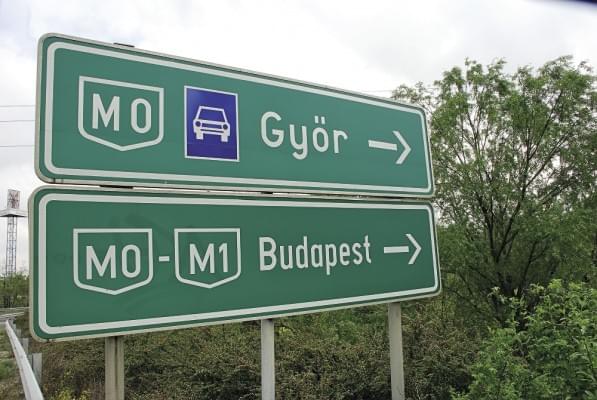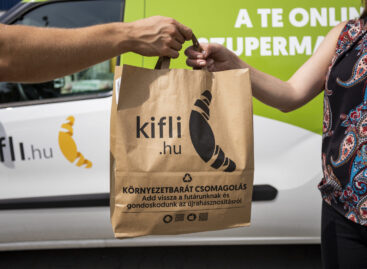Electronic road toll costs can be reduced further
According to feedback from retail chains, the introduction of electronic road toll for trucks heavier than 3.5 tons last July entailed a 2-3 percent increase in the price of essential groceries (e.g. bread, milk, flour, sugar, fruits, vegetables, mineral water).
Revenue from the electronic road toll was nearly HUF 79 billion for the central budget in 2013 and this year the government calculates with HUF 150 billion. It is freight companies that have to pay the toll, but according to information from the Hungarian Association of Logistics, Purchasing and Inventory Management (MLBKT) transportation companies pass on 70-100 percent of electronic road toll costs to their partners. The introduced road toll is usage-proportionate, so the farther the goods come from and the lower their price is, the bigger the transportation cost consumers have to pay for. Increased costs also influenced retailers’ purchasing decisions. György Karmazin, MLBKT’s vice president responsible for regional matters and event organisation, called attention to the fact that retailers gave priority to service providers with vehicles lighter than 3.5 tons and paid more attention to maximum loading capacity use. Despite the introduction of the toll road transport retained its leading position in freighting. It is fast, the path of goods can be tracked and customers’ ‘just-in-time’ (JIT) demand is satisfied. Nevertheless, the Association of Hungarian Logistics Service Centres (MLSZKSZ) suggests using an intermodal solution: freighting companies transporting goods by trucks from no more than 70km to logistics centres, where the goods are loaded on ships or trains, should be exempt from paying the toll. Gábor Dittel, managing secretary of NiT Hungary told our magazine that a growing number of lobby organisations urge the Ministry of National Development to give a discount on the toll to trucks with EURO 4 and 5 engines. The expert added that the biggest problem at the moment is that the toll isn’t paid for kilometre-proportionate use but section-proportionately. Costs can be reduced significantly by investing in technology: the HU-GO electronic road toll paying system debuted last year and after early-day difficulties it is now connected with the Ministry of Interior’s fleet tracking system, and its map software improved a great deal, too. The problem is that the Hungarian road toll service operator doesn’t provide transportation companies with OBUs, they have to buy them at their own cost. No wonder that currently OBU’s penetration is only 48 percent among tall payers. Lajos Szabó managing director of iData Kft., the company that developed the iTrack GPS system, is of the opinion that using OBUs is the best option for companies that can’t precisely plan transports in advance. It is a bit of a problem that cheaper, poor quality OBUs appeared in the market. iData Kft.’s on-board unit has already passed National Road Toll Payment Services’ (NÚSZ) accreditation process for electronic road toll payment systems.
Related news
Related news
Leadership change at Fornetti: Nándor Szabó is the new Managing Director
Nándor Szabó will take on the role of CEO of…
Read more >Change in Zwack management: Csaba Belovai is the new CEO of Zwack Unicum Plc.
According to the decision of the owners of Zwack Unicum…
Read more >Kifli’s big summer challenge begins
Imagine summer without queuing, carrying and long shopping lists. Instead,…
Read more >




